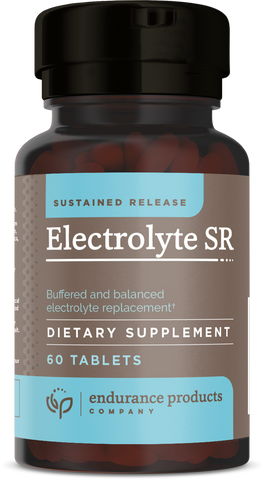Heatwaves are more dangerous – and deadly – as we age but not necessarily because we’re getting older. Research shows that our heat tolerance decreases after age 45 and our bodies are more likely to be strained in the heat. Yet, it’s the complications of aging, medications given for those complications, and cognitive decline that lead to heat-related illness and death.
Knowing health-related factors that exacerbate hyperthermia (heat illnesses including heat stroke, exhaustion, cramps, edema and syncope) reduces the risk of hospitalization.
Read on to learn about risk factors worth knowing and discussing with a doctor.
Protecting Ourselves from Heat Illnesses
After a heatwave killed nearly 200 people died in Oregon and Washington in a 2021, a Harvard Medicine article called on clinicians to proactively warn people of their risk factors, especially when heat surges loom. Yet, it’s likely that health care providers don’t have a system to check on patients with higher risks every time temperatures soar. (Plus, risks increase before temperatures hit 100 degrees.)
We need to be proactive. Learning what makes us vulnerable in the heat can also protect us. While over 80% of the 12,000 Americans who die from heat-related illnesses each year are over age 60, we can be at higher risk much younger.
Heat-Related Health Dangers
As we age, even if we’re healthy, it’s more difficult to notice we’re too hot or becoming dehydrated. We may not feel thirsty. Plus, older adults take longer to recover from dehydration.
Heat intolerance is more common after age 70, yet many factors can lead to heat issues at much younger ages. Among those factors are diabetes, high blood pressure, cardiovascular disease, thyroid diseases, neurodegenerative diseases including dementia, and nutritional deficiencies. Likewise, being obese and out of shape greatly increases our risk of heat illness.
As we get older, our bodies hold more heat, and we don’t sweat as much so we don’t cool down as efficiently. Additionally, we have less water in our bodies as we age, and our blood flow decreases. Our cardiovascular systems may struggle trying to cool the body.
Aging doesn’t mean we can’t handle hot temperatures, however. We can acclimate and perform as well in the heat as younger people provided we have time to acclimate and are wary of major risk factors. People who live and work in hot climates fare better because they’re used to the heat. Many take electrolytes to stay hydrated and rehydrate. Electrolytes help our bodies regulate temperature and function properly. Even if we’re acclimated to hot weather, which may take 10 days, we still need to be careful and know our risk factors.
Risk Factors for Heat Illness and Intolerance
- Medications that reduce sweating such as sedatives, diuretics, tranquilizers, and some heart and blood pressure drugs.
- Heart, lung, and kidney diseases, and any illness that causes general weakness or fever.
- Age-related skin changes including poor blood circulation and inefficient sweat glands.
- High blood pressure and other conditions that require salt-restricted diets.
- Decreased physical activity and aerobic fitness.
- Being substantially overweight or underweight.
- Drinking alcoholic beverages.
- Being dehydrated.
Lifestyle factors also increase risks for people, especially seniors who are home-bound or have limited interactions. These factors include not understanding how to respond to weather conditions, overdressing, being in overcrowded places when it’s hot, lack of transportation, and hot living spaces.
How Do We Mitigate Our Risks?
Whether we’re at high risk or not, we can protect ourselves from heat illnesses by taking a few precautions. The National Institutes on Aging recommends we:
- Drink plenty of liquids like water and juice; limit or avoid caffeine and alcohol.
- Avoid exercise or activities outside once temperatures soar. Work out inside.
- Dress appropriately; natural fabrics like cotton are cooler than synthetic fibers.
- Keep the home as cool as possible. Close blinds/shades. Open windows at night.
- If the home is hot mid-day, go somewhere cooler like a friend’s, a library, or a theater.
Senior transportation and ride services are available for rides to cooler places. Seniors can find local transportation here. Cities often waive bus fares for people traveling to cooling centers.
During hot spells, take the warning signs seriously. Feeling faint, dizzy, confused, or having a headache or a fever during a heatwave is cause for concern. Lie down in a cool place or shower/bathe/sponge off with cool water. Cold-packing wrists and/or the jugular vein in the neck drops the body temperature.
Get more tips on staying cool and healthy in extreme temperatures in this article. But if symptoms persist, please call your doctor or go to the emergency room.
